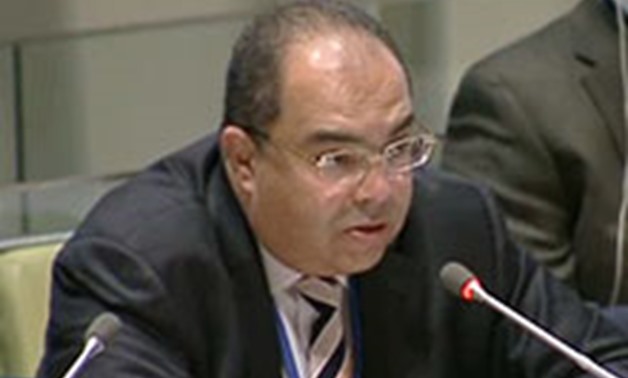
World Bank Group’s senior vice president Mahmoud Mohie el-Din_ Archive
CAIRO – 18 May 2017: The Arab League was celebrating the “Arab Sustainable Development” (ASD) week, in the period from May 14 to 17, 2017, under auspices of President Abdul Fatah al-Sisi. With the goals of supporting Arab countries to achieve SDGs (Sustainable development goals) in the Arab region by meeting the UN agenda 2030, exploring challenges and opportunities for future of Arab societies, and to provide a comprehensive Arab framework to discuss issues of sustainable development in the Arab world.
Another goal of the ASD week is to attract the largest number of Arab and foreign participants and speakers from all walks of life in order to implement the principle of partnership for development.
On the sidelines of the ASD, Egypt Today talked to Mahmoud Mohie el-Din,who is the World Bank Group’s senior vice president for the 2030 Development Agenda, United Nations Relations, and Partnerships. Before joining the World Bank, Mohie el-Din held numerous senior positions in the government of Egypt, including minister of investment from 2004 until 2010. He also served on several boards of directors, including the Central Bank of Egypt and the banking and corporate sector. He was a member of the Commission on Growth and Development and selected a Young Global Leader of the World Economic Forum.
Q&A with Dr. Mahmoud Mohie el-Din
ET: Egypt was classified in the 90s among the fast developing countries, we were among the fast developing Asian countries, how do you explain our fast backslide from that classification?
Mohie el-Din: There are two issues here, there is the fast growth and the sustainable development; fast growth could be resumed easily, as you mentioned back in the 90s, and in the period between 2005 and 2010, there was higher growth. But what we need is not only high growth or fast growth, we need inclusive growth across sectors and across regions within Egypt. We also need to do that considering well the opportunities for women, and factoring gender issues, and at the end of the day, growth is an important component within sustainable development. We need to include social development, investment in human capital through education, and through health and paying closer attention to environmental issues.
ET: Speaking of the human capital, do you think Egypt is taking the right path into that matter? Or do we need more inclusive plans?
Mohie el-Din: For the human capital, there is some serious attention being given to the discrepancies and the gaps in human capital compared to peer countries. I read the 2030 agenda of Egypt, and it has good consideration for the priorities for matters related to education, health, opportunities, for men and women and for the young people. It is all about keeping the promise by good implementation of the topics, better coordinating policies and more reforms from the institutional perspective, and pushing the resources by allocating them in the right directions.
ET: Bearing in mind that the less developed world did not have much hand in the root causes of climate change and global warming, should developing countries really consider international environmental concerns when planning for their development especially that this was an issue of dispute in Copenhagen and Kyoto conferences?
Mohie el-Din: Yes, but you mentioned Copenhagen but you didn’t mention Paris; Paris was a success in terms of the summit and the commitments, and identifying the requirements for investments either in the adaptation or the mitigation.
Environment is one of the three factors of sustainable development, we mentioned sustainable growth, investment in human and social development and environment and the related investment to climate change is very critical going forward.

Comments
Leave a Comment